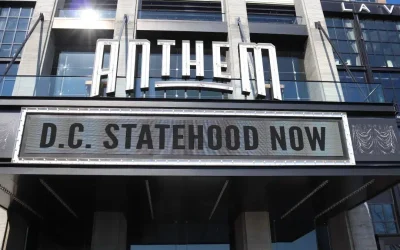The three defendants in the $25 million Wiseguy Tickets computer hacking case escaped jail time and received sentences of probation from a federal judge today, June 9.
Kenneth Lowson and Kristofer Kirsch each received two years’ probation and Joel Stevenson received one year. The trio pleaded guilty late last year to conspiracy to commit wire fraud and other charges for their part in the multi-million-dollar ticket scalping scheme.
Over a several-year period, the defendants used sophisticated computer programs — called bots — to surreptitiously procure approximately 1.5 million premium event tickets. A fourth suspect, Faisal Nahdi, fled the country prior to the March 2010 indictments and has never appeared in court to answer the charges.
Prosecutors sought at least two years’ worth of incarceration for the three defendants, but Judge Katherine S. Hayden decided against jail time.
Lowson’s attorney, Mark Rush, who was the lead defense attorney in the case, told TicketNews that he and the defendants were pleased by the sentences. Besides probation, Lowson and Kirsch must each perform 300 hours of community service, and Lowson must forfeit more than $1.2 million.
“The court spent a great deal of time on this case, which straddled the line between civil and criminal, so we believe the sentence was just,” Rush said, adding that the defendants are completely out of the ticket broker business though he declined to say what businesses they are now in. “The judge recognized that the secondary ticket market is legal and thriving.”
According to federal prosecutors, Wiseguy Tickets “targeted Ticketmaster, Telecharge, Tickets.com, MLB.com, MusicToday, Live Nation and other online ticket vendors” and “fraudulently obtained prime tickets” to sports playoff games and concerts by Bruce Springsteen, Kenny Chesney, Barbara Streisand and Hannah Montana (Miley Cyrus), among others. The defendants paid for the tickets, but their software bots essentially prohibited thousands of fans from getting a fair shot at buying them. Wiseguy Tickets then resold those tickets to brokers at a profit, and those brokers then resold those tickets to the public, also at a premium.
To procure the tickets, the Wiseguys used computer programmers in Bulgaria to help run the bots, and they “admitted to the use of aliases, shell corporations and fraudulent misrepresentations – both to deploy the computer network and to disguise their ticket-purchasing activities,” according to federal prosecutors.
U.S. Attorney Paul Fishman, who oversaw the federal case, did not comment specifically on the sentencing, but he thanked the FBI, the U.S. Postal Service and others for their work.
Defense attorneys lined up support for their case from several internet and electronic commerce advocates and experts who questioned whether a crime had been committed, considering the Wiseguys paid for the tickets.
“The court made reference to our motions to dismiss and suppress, which gave her pause and may have had an effect on her decision,” Rush said. “I wouldn’t characterize this as a defeat for the prosecution or anyone, but what this decision shows is that this is an area of the law that remains gray.”
“Judges are going to have an issue sentencing anyone to jail for buying a product or competing in the free market,” said Don Vaccaro, founder and CEO of third-party ticket exchange TicketNetwork. “Especially since primary ticketers, artists and venues use their software to keep huge blocks of tickets for sale at inflated prices, basically creating their own ticket bots.”
TicketNetwork is the parent company of TicketNews.



